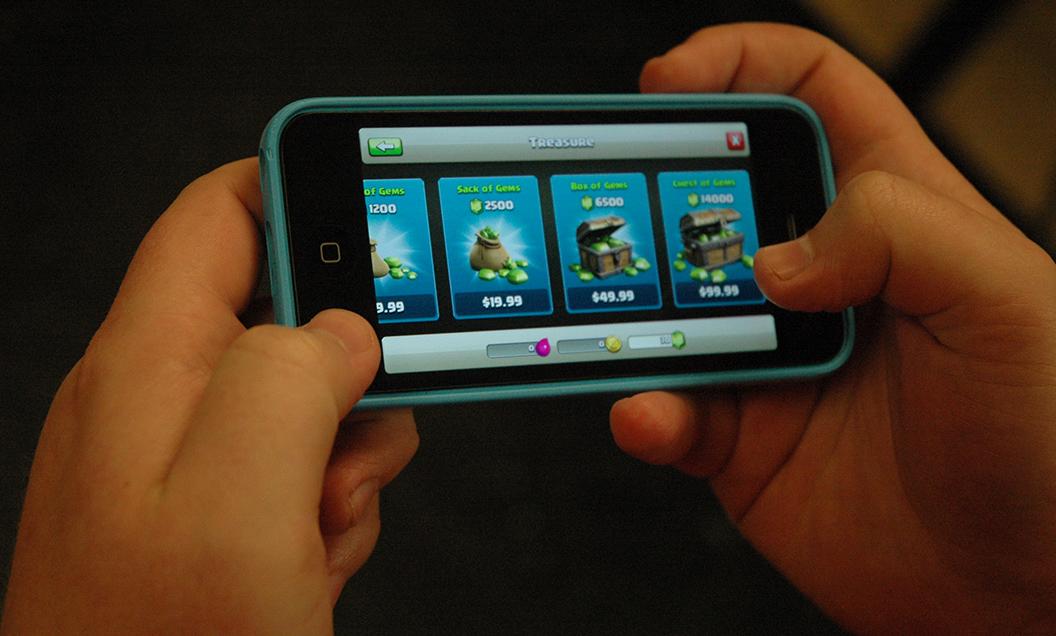Photo Illustration by Cory Wyman ’16 – Pay-to-win games such as “Clash of Clans” (seen above) offer an unhealthy business model for mobile gaming.
By Jace Riley ’16
THE ROUNDUP
Two of the most popular things in our culture are videogames and anything free.
When the two get paired together, people get excited.
Many current free games are just for your iPads and phones, but there are a few on your computers, as well.
However a majority of these games trick players into getting the game, only to find it is pay-to-win, also known as “freemium.”
What this means is that while the price tag says free, it really isn’t.
Games like “Clash of Clans” are the biggest offenders. Any game that has you build a city or kingdom tends to be freemium.
These games label themselves as free to play, however there are microtransactions in these games. Meaning you can buy stuff while playing.
“Clash of Clans” allows you to buy gems, an in-game currency that’ll speed up the process of creating your buildings.
I don’t have a problem with these microtransactions. It’s the scheme the companies employ.
But using the label free, they get people to try out their game without fear of losing money.
Then realizing that you need to make stuff quicker, or need to buy energy to play more, you are forced into paying.
That’s what I find bad about freemium games. If your game truly isn’t free, don’t label it as free.
Recently, even Apple took a stance on this by removing the word “free” from the store and replacing it with “get” since these aren’t truly free. They also added small text underneath saying the game offers in-app purchases.
This a step in the right direction. It eliminates the illusion of a free game.
However, not all free games abuse this. “League of Legends” and “Dota 2” are almost 100 percent free.
Both games offer in-game cosmetic items that you can buy or even earn, but they do not enhance your play and are not necessary to win.
Buying them is optional, allowing you to show others how you feel about a certain character.
“League” doesn’t have all of its characters as free, but there is a good in-game free currency that only takes time to earn up. You can use that to buy characters.
In total, I think game developers need to be upfront; they can’t hide if their game is free or not.
Microtransactions, while not necessarily good, aren’t the problem, which is what many think. The problem is the companies hiding the true cost of the game.




















